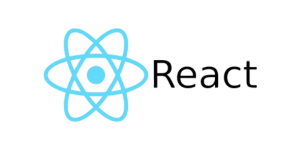In the world of modern web development, the MERN stack has become one of the most popular choices for building dynamic and responsive web applications. MERN stands for MongoDB, Express.js, React, and Node.js—four powerful technologies that together create a robust, scalable, and high-performance web development stack. In this blog post, we’ll explore each of these technologies in detail, discuss their unique benefits, and explain why the MERN stack is the go-to solution for many developers.
A Deep Dive into MERN Stack: The Powerhouse of Modern Web Development
What is the MERN Stack?
The MERN stack is a combination of JavaScript-based technologies that allow developers to build full-stack web applications. The stack includes:
- MongoDB: A NoSQL database.
- Express.js: A minimalist and flexible web application framework for Node.js.
- React: A JavaScript library for building user interfaces, particularly single-page applications.
- Node.js: A JavaScript runtime environment for executing JavaScript on the server-side.

MongoDB: A Flexible NoSQL Database
MongoDB is a NoSQL database that stores data in JSON-like documents rather than the traditional tabular format used by relational databases. It allows for a more flexible and scalable approach to data management. In the MERN stack, MongoDB is used to store application data, such as user information, posts, comments, and more.
Key Features of MongoDB:
- Routing: Express makes it easy to define the routes for handling different HTTP requests (GET, POST, PUT, DELETE).
- Middleware: It allows developers to add middleware functions that can be used to process requests, such as authentication or logging.
- Template Engines: Express supports various template engines (like Pug, EJS) to render views dynamically.
Why Use MongoDB in MERN?
MongoDB is ideal for MERN applications due to its flexibility and scalability. It enables developers to work with data models that don’t have fixed schemas, making it easier to modify or add new fields as applications evolve. Its NoSQL nature allows it to handle large amounts of unstructured data efficiently.

Express.js: Simplifying Server-Side Development
Express.js is a fast, unopinionated, and minimal web application framework for Node.js. It provides a robust set of features for building web applications and APIs. Express makes routing and handling HTTP requests simple and intuitive.
Key Features of Express.js:
- Component-Based Architecture: React allows developers to break down the UI into reusable components, making the codebase easier to maintain and scale.
- Virtual DOM: React uses a virtual DOM to improve the performance of UI updates. It only re-renders components that have changed, making updates faster.
- State Management: React provides powerful tools for managing the state of an application, both locally and globally.
Why Use Express.js in MERN?
Express provides a clean, fast way to build RESTful APIs and server-side logic. It integrates seamlessly with Node.js and makes the server-side development process much more manageable, allowing developers to focus on application logic rather than low-level server management.

React: Building Dynamic User Interfaces
React is a JavaScript library for building user interfaces, particularly for single-page applications (SPAs). Developed by Facebook, React allows developers to create reusable UI components, which makes building complex UIs much easier.
Key Features of React:
- Non-Blocking I/O: Node.js is designed to handle multiple requests simultaneously without blocking the execution of other requests. This makes it highly scalable.
- Single Language: Developers can write both client-side and server-side code in JavaScript, which reduces the complexity of managing multiple languages.
- Large Ecosystem: Node.js has a large ecosystem of open-source libraries available through npm (Node Package Manager), which helps developers quickly build robust applications.
Why Use React in MERN?
React’s flexibility, combined with its component-based architecture, makes it an excellent choice for building dynamic, responsive UIs. React enables developers to create modern, fast, and user-friendly interfaces that can easily communicate with a back-end built with Express and Node.js.

Node.js: JavaScript on the Server
Node.js is a runtime environment that allows developers to execute JavaScript code on the server side. Built on Chrome’s V8 JavaScript engine, Node.js is known for its event-driven, non-blocking I/O model, making it ideal for building scalable network applications.
Key Features of Node.js:
- Scalability: MongoDB offers high scalability, making it suitable for applications that require large amounts of data and traffic.
- Flexibility: The database stores data in JSON-like format, meaning it can handle a wide variety of data types.
- Speed: MongoDB is optimized for fast data retrieval and writing operations.
Why Use Node.js in MERN?
Node.js enables developers to write JavaScript code on the server-side, which allows for a unified language throughout the entire MERN stack. It is particularly well-suited for handling real-time applications, such as messaging or live data updates.
Benefits of the MERN Stack
- 1) Full-Stack JavaScript: With MERN, developers can use a single language, JavaScript, across the entire development stack (front-end and back-end). This simplifies development and improves efficiency.
- 2) Real-Time Development: Node.js, along with MongoDB, allows for the creation of real-time applications, making MERN a great choice for chat apps, social media platforms, and more.
- 3) Scalability: Both MongoDB and Node.js are highly scalable, making the MERN stack an ideal solution for applications that expect to grow in terms of traffic and data.
- 4) Community and Resources: Since each of the MERN technologies is widely used, there is an active community and a wealth of resources available for developers to tap into.
- 5) Flexibility: The MERN stack is highly flexible, allowing developers to customize the architecture based on the needs of the application.
Conclusion
The MERN stack is a powerful, efficient, and scalable choice for building modern web applications. By combining MongoDB, Express.js, React, and Node.js, developers can create full-stack applications with a unified language—JavaScript. Whether you're building a simple web app or a complex, data-driven platform, MERN provides the tools and flexibility needed to bring your ideas to life.
Call To Action
Looking for MERN Stack Developers? Contact us today to discuss your requirements.
Get In Touch
Let's make your brand brilliant!
If you would like to work with us or just want to get in touch, we’d love to hear from you!
We are here to answer any question.
Get In Touch

Australia
130 Napier Avenue,
Mango Hill, Brisbane, QLD, 4509
hello@stammp.com
+61-452609021
+61-412563914

India
TF-6, Lotus Aura-1,
Near IOCL Petrol Pump, Sama-Savli Road,
Vadodara, Gujarat India
hello@stammp.com
+91 79847 19060






